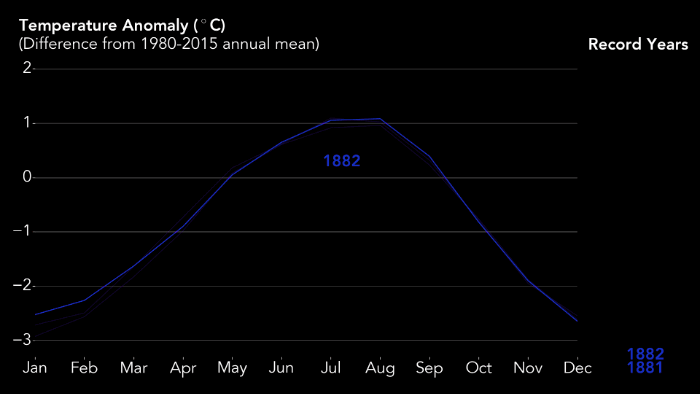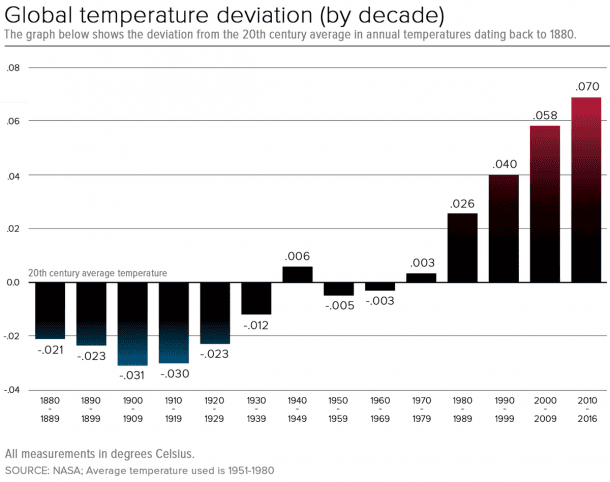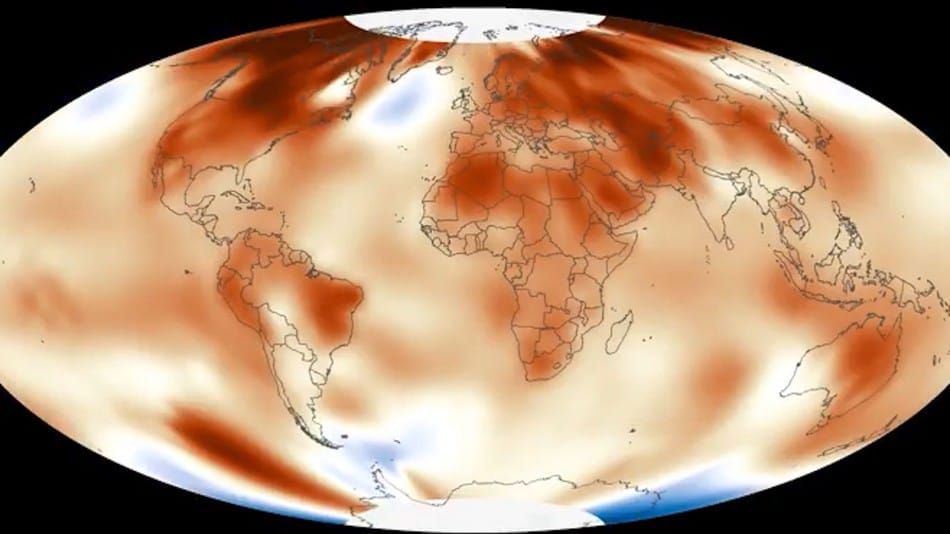Climate scientists have recently revealed that 2016 was the warmest year, beating 2015 and 2014 for its hair-raising “accolade.” This milestone also shows that 16 of the 17 warmest years ever have occurred since 2001, with each coming year being warmer than the last.
While many climate change deniers will still claim this as untrue, the researchers plan to put further evidence in front to spread awareness about the emerging issue to stop the world from inching towards the impending doom.
Below are some of the graphics released by NASA and media outlets to illustrate the grim reality of 2016 being the hottest on record.
NASA’s record warm years animation

The animation above released by NASA scientists shows the long-term warming trend over the years, along with record warm years listed on the right-hand side.
This graphic, which also includes Arctic temperature data, clearly shows that 2016 exceeded the early 19th and 20th century to some extent. The Arctic saw record temperatures during 2016, and record low sea ice as well along with other widespread environmental changes.
Decade Wise Temperature Trends

The above chart illustrates deviation from the 1951 – 1980 average per decade. It clearly reveals that the technological advancements in the previous century didn’t come without a heavy environmental cost.
The accelerated increase in the global temperature average is evident, with the current decade racking up the highest temperatures so far.
Temperature anomalies show a world turning red
The video above was released by both NASA and NOAA, depicting the progression of temperature rise over time, eventually covering the entire planet in orange and red hues as we arrive at more recent decades.
By NOAA’s stats, global land and ocean surface temperatures are 0.94 degrees Celsius, or 1.69 degrees Fahrenheit higher than the 20th-century average. 2016 beat the 2015 record by 0.04 degrees Celsius, or 0.07 degrees Fahrenheit, with the first eight months of the year creating a record warmth title as well.
Using a different method, NASA concluded that the average global surface temperatures last year were 0.99 degrees Celsius, or 1.78 degrees Fahrenheit warmer than the 20th-century average.
How do you think we can improve the situation of global warming? Comment below!


